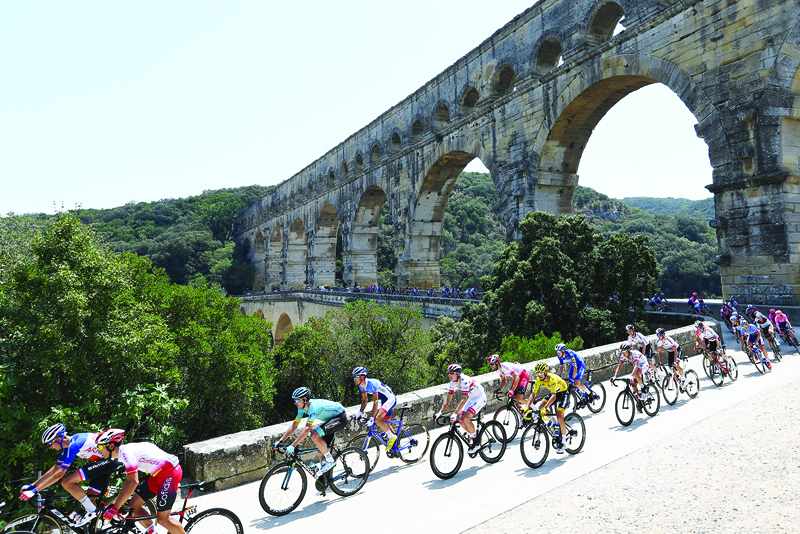
PARIS: The coronavirus pandemic has thrown this summer's Tour de France into a state of frantic reorganisation, but the cycling epic has had to contend with testing situations over its 116-year history. French President Emmanuel Macron's announcement on Monday outlawing mass gatherings until mid-July has left organisers scrambling to find a new start date for the 2020 edition originally scheduled to get underway in Nice on June 27. Here AFP takes a brief look at some previous hurdles the Tour has had to negotiate in its more than a century long history:
SHOTS AND SKULDUGGERY
In the Saint-Etienne region during the second edition of the race in 1904 supporters of local favourite Alfred Faure physically assaulted his rivals. Shots were fired to restore order in riotous circumstances. There was so much skulduggery going on the top four finishers were all disqualified. Henri Desgrange, the founder of the Tour, said at the time: "The Tour has been killed by the passions it has aroused".
WORLD AT WAR
The day the 1914 Tour de France began, Archduke Franz Ferdinand of Austria was assassinated in Sarajevo. The Tour would make it to Paris on July 26 just two days before the Austro-Hungarian Empire declared war on Serbia, setting the stage for the outbreak of the first World War. For the record Belgian Philippe Thys won the Tour that year, the last time it was held until 1919.
20 YEARS ON
The 1939 Tour embarked without the German, Italian or Spanish riders and avoided the north and the west regions altogether. It ended less than five weeks short of the declaration of war made by France and England on Nazi Germany. The Tour was not raced again until 1947.
ROAD BLOCK
In 1982, some 300 steelworkers striking over job losses in the northern French town of Denain blocked the road for the team time-trial, causing the stage's cancellation. The Tour has been targeted many times by strikers but had never lost a stage before or since. However, in 1978 the first of a two-part stage was annulled when the riders themselves put their foot down and refused to continue over a lack of rest time, stopping just short of the finish line.
DOPING
While France was celebrating winning the World Cup in 1998 cycling was struck in the heart by the so-called Festina doping affair when customs officials stopped a vehicle laden with doping products. There was a media storm as police raids and arrests led to the Festina team being thrown off the race as the peloton staggered into Paris on a Tour that ended under a cloud and at one time looked unlikely to finish.
PARIAH
The world's love affair with the Tour was sorely tested in the ensuing years when cycling fell under the spell of US Postal's Texan rider Lance Armstrong, who won from 1999-2005. Armstrong was eventually stripped of his seven Tour de France titles after admitting to doping. The American is seen widely as a pariah not only because of the doping but also because of how he used his power and influence at the top of the sport to intimidate others whilst trying to keep a lid on the matter. - AFP

